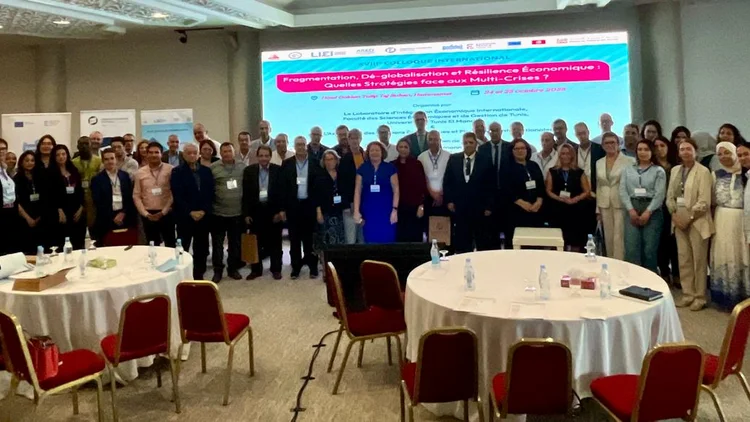As nations grapple with geopolitical tensions, supply chain disruptions, and climate pressures, a major international conference in Tunisia has convened to map a path toward economic resilience. The Laboratory of International Economic Integration (LIEI) at the University of Tunis El Manar gathered leading economists, policymakers, and global experts to address one of the most pressing issues of our time: “Fragmentation, De-Globalization, and Economic Resilience: What Strategies in the Face of Multi-Crises?”
The two-day forum, held in Hammamet and supported by the Friedrich Naumann Foundation for Freedom, Savoirs Eco, and the Bank of Tunisia and the Emirates, served as a critical platform to dissect how countries, with a specific focus on Tunisia, can navigate the shifting landscape of global trade, finance, and sustainable development.
High-Level Dialogue on Global Economic Fault Lines
The conference featured a packed agenda of plenary debates and parallel sessions, diving into the complex economic dimensions of the current multi-crisis environment. Key topics included the reconfiguration of global value chains, the tightrope walk of monetary policy in an inflationary era, and the dual challenges of digital and green transformations.
Distinguished speakers from international financial institutions and academia underscored a consistent theme: the critical need for evidence-based research and inclusive policy dialogue to bolster Tunisia’s economic resilience and competitive edge on the world stage.
A Hub for Cutting-Edge Research and Regional Collaboration
Beyond the high-level discussions, the event solidified its role as an incubator for strategic thought. Dozens of scientific sessions saw Tunisian and international researchers from France, Morocco, Canada, Spain, and the UAE present groundbreaking studies. Their work spanned a wide spectrum, from the fiscal pressures of public debt and the mechanics of sustainable finance to the economic implications of artificial intelligence, migration, and climate-smart agriculture.
Charting a Course Forward
The conference concluded with a final plenary, chaired by Prof. Habib Zitouna, which explored how global upheavals are compelling a fundamental rethink of traditional macroeconomic and development models.
By successfully bridging academic rigor with actionable policy insights, the 2025 LIEI International Conference has reaffirmed its position as a vital laboratory for innovative economic ideas. In a world of increasing uncertainty, the forum demonstrated Tunisia’s continued capacity to host a crucial dialogue aimed at shaping pragmatic reforms for a rapidly transforming global landscape.
TunisianMonitorOnline (NejiMed)




